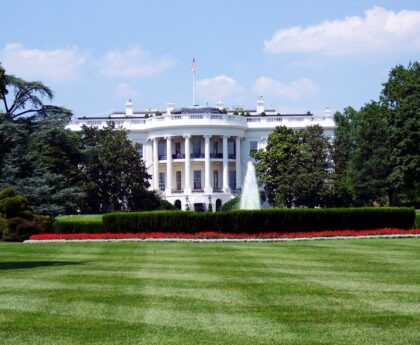Russell Brand: A Career Defined by Darkness and Delusions
The Multi-Faceted Persona of Russell Brand
Russell Brand, the scandal-ridden comedian and Hollywood husband, has carved out a career that is as multifaceted as it is controversial. From his early days as a drug addict and self-proclaimed sex addict, to his foray into politics and activism, Brand has constantly reinvented himself, often stirring up controversy and prompting uncomfortable questions.
Brand’s comedy style has always relied on shock tactics and controversy. He gained notoriety for his chaotic stand-up shows, which included releasing locusts, smashing dead animals, and cutting up pigs’ heads. This willingness to push boundaries and provoke reactions has both fueled his career and sparked criticism.
A Troubled Past and Addictions
Born in Essex in 1975, Brand’s early life was marked by turmoil and addiction. He started experimenting with drugs at a young age, including amphetamines, ecstasy, and LSD. He developed a sex addiction and became obsessed with pornography. His drug use eventually led to his expulsion from stage school, but it was also around this time that his comedy career began to take off.
Brand’s addiction struggles continued throughout his career. He battled heroin addiction and was famously fired from a job at MTV after arriving at the studios dressed as Osama bin Laden while high on drugs. In 2006, his drug use and controversial behavior reached a peak with the scandal known as “Sachsgate,” in which he and Jonathan Ross made lewd phone calls to Fawlty Towers star Andrew Sachs. The incident resulted in widespread public backlash and ultimately led to Brand’s resignation.
A Shift to Political Activism and Wellness
Following his resignation, Brand underwent another transformation, shifting his focus from comedy to political activism and wellness. He embraced transcendental meditation and mindfulness, crediting them with helping him overcome his addictions. He wrote a self-help book, “Recovery: Freedom from Our Addictions,” and launched a podcast and YouTube series centered around political and spiritual topics.
Brand’s newfound political activism, however, came with its own contradictions. While championing causes such as the #MeToo movement, he faced criticism for his past behavior towards women, with some accusing him of sexism. He also drew attention for his conspiracy theories and anti-vaccine stance, using his large platform to spread misinformation and fake news.
The Dangers of Celebrity Influence
Brand’s career trajectory raises important questions about the influence of celebrities and the responsibility they have when using their platforms. While he has undoubtedly used his fame to bring attention to important issues and advocate for change, his promotion of conspiracy theories and misinformation is deeply concerning. It highlights the dangers of celebrities using their influence without the necessary expertise or reliable sources of information.
In an age where misinformation spreads rapidly online, it is crucial for public figures to exercise caution and responsibility when sharing their views. The line between entertainment and activism can become blurred, and celebrities like Brand must consider the potential consequences of their words and actions.
The Need for Critical Thinking
As consumers of media, we must also take responsibility for critically engaging with the information we encounter. It is crucial to question and fact-check the claims made by public figures, even those we admire or agree with. Blindly accepting and sharing information without verifying its accuracy can contribute to the spread of misinformation and perpetuate harmful narratives.
In the case of Russell Brand, it is important to approach his views and statements with skepticism and critical thinking. While he may have valuable insights on certain topics, his promotion of conspiracy theories and misinformation should be met with caution and scrutiny.
Conclusion
Russell Brand’s career is a testament to the complexity and contradictions of public figures. While he may have brought laughter and entertainment to many, his controversial past, questionable beliefs, and use of his platform to spread misinformation raise important ethical considerations. As consumers of media, we must engage critically with the narratives presented to us and demand transparency, accuracy, and accountability from those in the public eye.

<< photo by Pixabay >>
The image is for illustrative purposes only and does not depict the actual situation.
You might want to read !
- “Remembering Michael McGrath: Honoring the Irresistible Charm of a Tony Award-Winning Talent”
- Beloved Tony Award-winner Michael McGrath: An Unforgettable and Endearing Legacy
- Back in the Ring: Dwayne ‘The Rock’ Johnson’s Unforgettable WWE Comeback
- Russell Brand Denies ‘Criminal’ Allegations: Unveiling the Truth Behind the Controversy
- “DACA Program Faces a Renewed Legal Blow as Federal Judge Deems It Illegal”
- Exploring the New Features of Starfield Update 1.7.29
- ‘The Morning Show’ Returns, Unveiling an Enigmatic Billionaire
- “Devastation and Loss: Reflecting on the Tragic Aftermath of the House Explosion”
- UFOs Take Center Stage: Lawmakers Demand Answers in Congressional Hearing
- “Jason Kelce Addresses Rumors Surrounding Brother Travis Kelce’s Love Life”
- “Dark Side of the Digital Realm: The MGM Hotels and Casinos Cybersecurity Crisis”
- Evolving Dynamics: Analyzing A.J. Brown’s Frustration on the Sideline




